New Film Shows How Art Brings Life to Green-Wood Cemetery
Discover how the living and the dead make Green-Wood Cemetery a vibrant part of NYCs cultural scene!


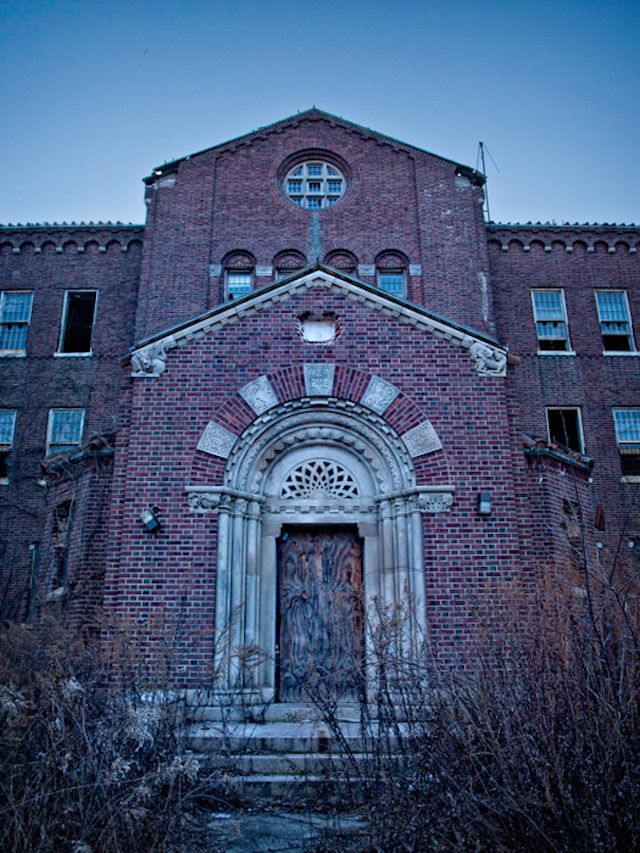
All images via Matthew Christopher for Abandoned America
As you may have heard before, American psychiatric hospitals in the early 20th century faced a pretty serious problem, that of limited occupancy for a an ever-growing number of patients. Pilgrim Psychiatric Center on Long Island, or the Pilgrim State Hospital as it was once called, was one of four state hospitals built to rectify New York’s overcrowded institutions. During its heyday in the years following World War II, it treated almost 14,000 patients and is the only one out of four, including the yet-to-be-built Englewood State Hospital, still functioning as a psychiatric center, albeit on significantly reduced grounds. A number of its empty buildings still remain, however.
The place is prime subject matter for Matthew Christopher, founder of Abandoned America, author of the book Abandoned America: The Age of Consequences and chronicler of the country’s begotten history. He lent us his photographs of Pilgrim Psychiatric Center’s abandoned sites as they stand today, and the results are as beautiful as they are eerie.
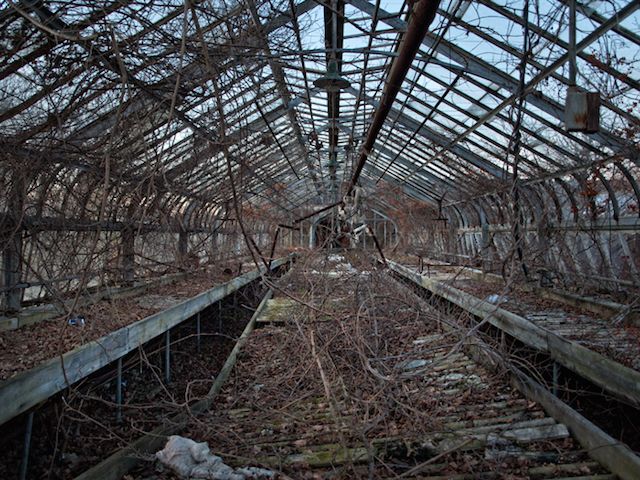
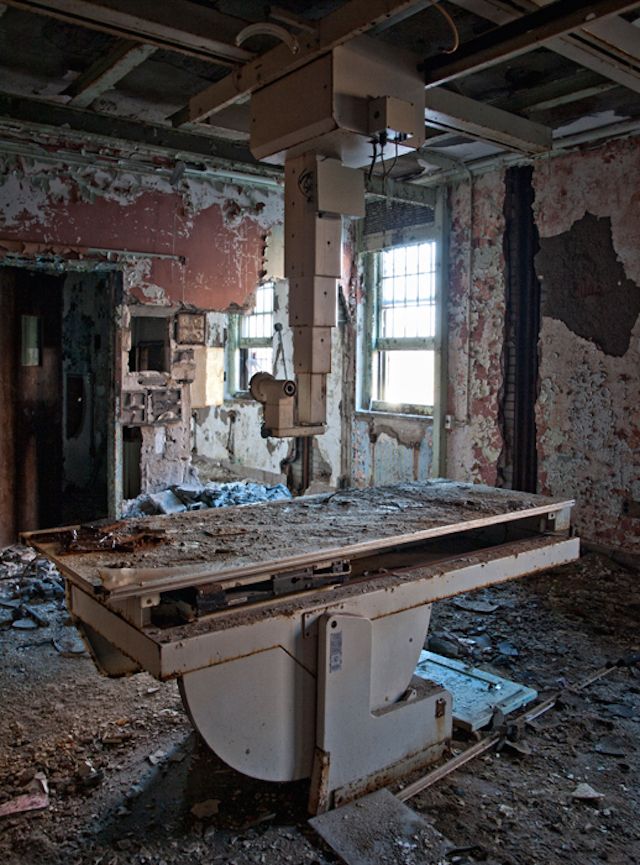
Like a few of our contemporaries, Christopher describes Abandoned America as “an autopsy of the American Dream.” The photos tell an unsung story that is often dramatized or exaggerated by the media for cheap thrills. At the turn of the century, New York invested in the founding of several ‘farm-colony’ state hospitals built to provide an agrarian, work-centric treatment to the mentally ill, places like Kings Park and Central Islip State Hospitals.
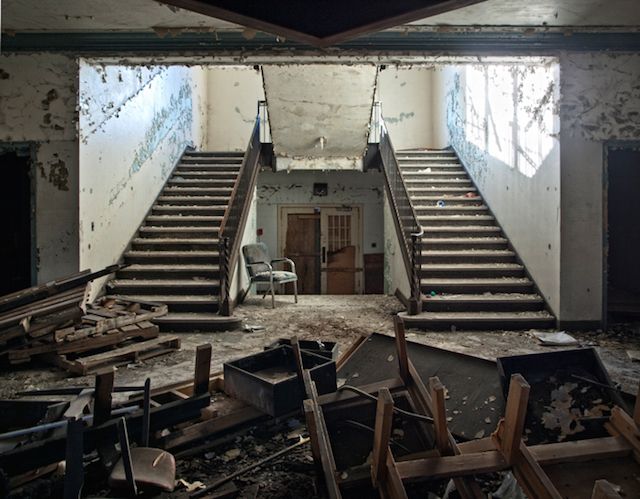
These two centers worked for a time but eventually began to struggle with overcrowding in the same way as their predecessors. Pilgrim, named for former New York State Commissioner of Mental Health Dr. Charles W. Pilgrim, opened in 1931 and grew steadily through the 40s. At one point it operated its own police and fire departments, post office, Long Island Railroad station, and church.

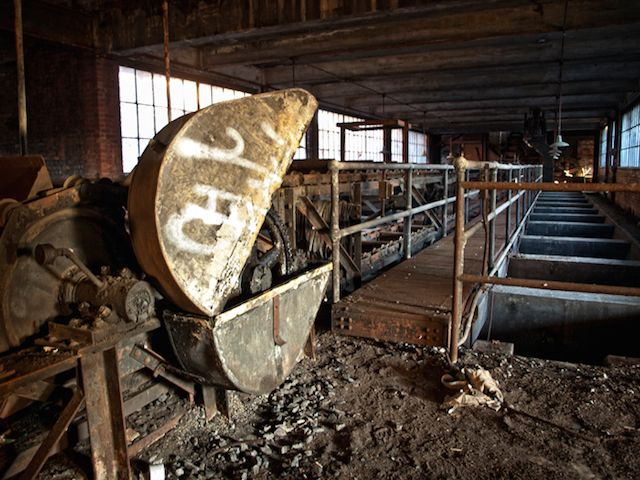
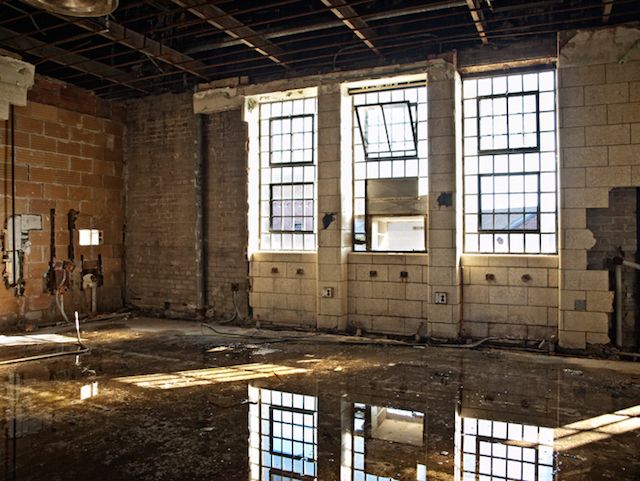
During the subsequent decline of the agrarian method for treating mental illness and the use of more invasive treatments like electroshock therapy and pre-frontal lobotomy throughout the ’50s, New York state hospitals languished as pharmaceutical treatments for mental illness improved and the effectiveness of institutionalization was increasingly questioned. In the ’90s, Kings Park, Central Islip, and Englewood were all closed, with their remaining patients either released into community care or relocated to Pilgrim.
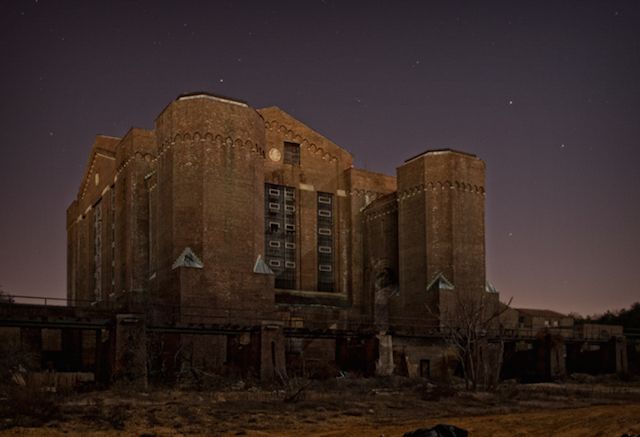
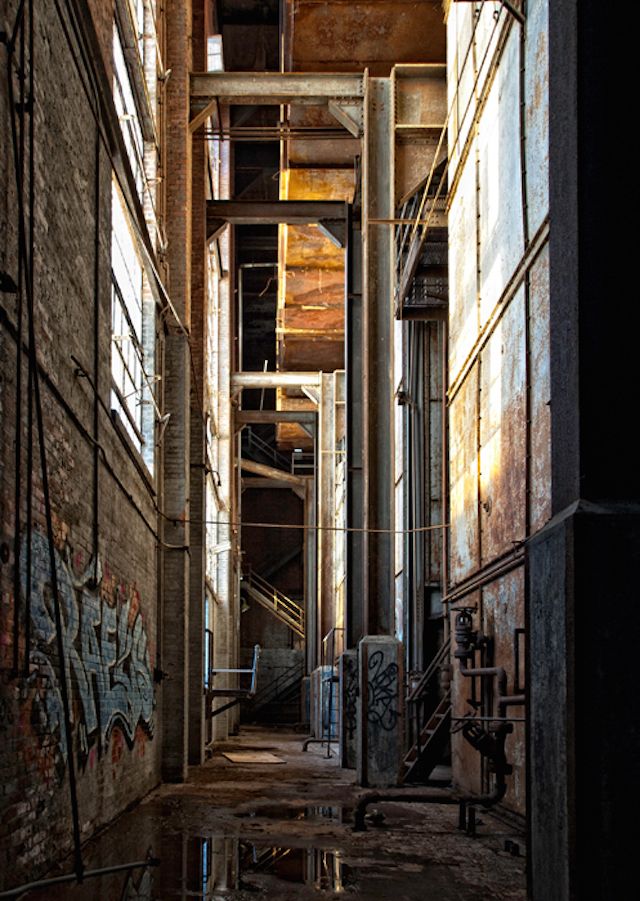
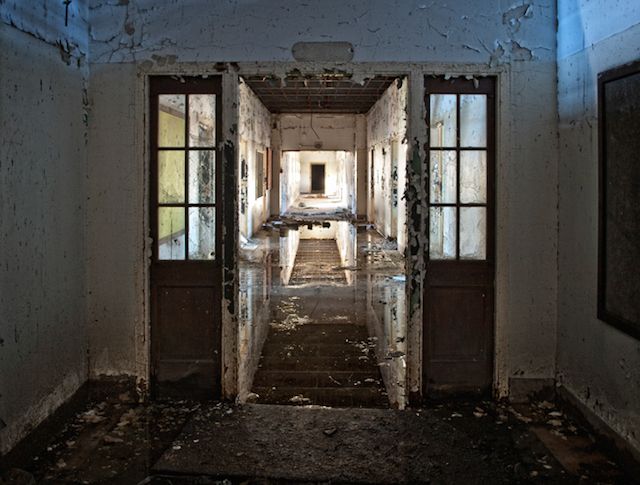
The center has never been exceeded in size by any other hospital, but has not functioned at full capacity ever since, with its farm sold to Suffolk County Community College and hundreds of acres of its grounds turned into offices and residential complexes. The medieval surgical building is gone too. What remains is the very last of Pilgrim’s legacy as the largest hospital in the country’s history and a relic of the state’s comparatively draconian methods for treating mental illness.
Though the grounds still used by the psychiatric center are guarded by officers of the New York State Office of Mental Health and Safety, there doesn’t seem to be much stopping thrill-seekers from seeing the ruins for themselves. But be warned. From the overgrown weeds, broken staircases, and crumbling walls, it’s no walk in the park.
See more of Matthew Christopher’s work in his book Abandoned America: The Age of Consequences and on his Facebook and Instagram page.
Take a tour of abandoned Bannerman Castle on the Hudson River with us!
Tour of Abandoned Bannerman Castle
Next read about the abandoned Kings Park Psychiatric Center next door. Get in touch with the author @jinwoochong.
Subscribe to our newsletter